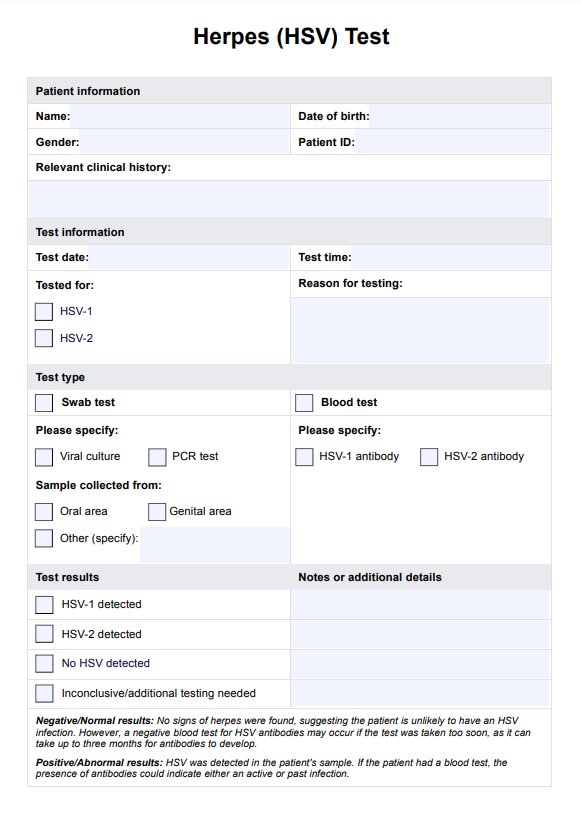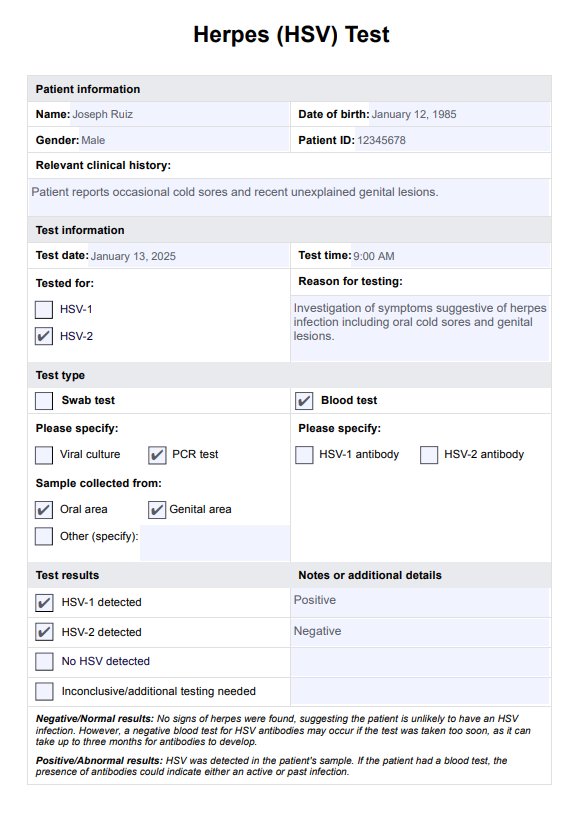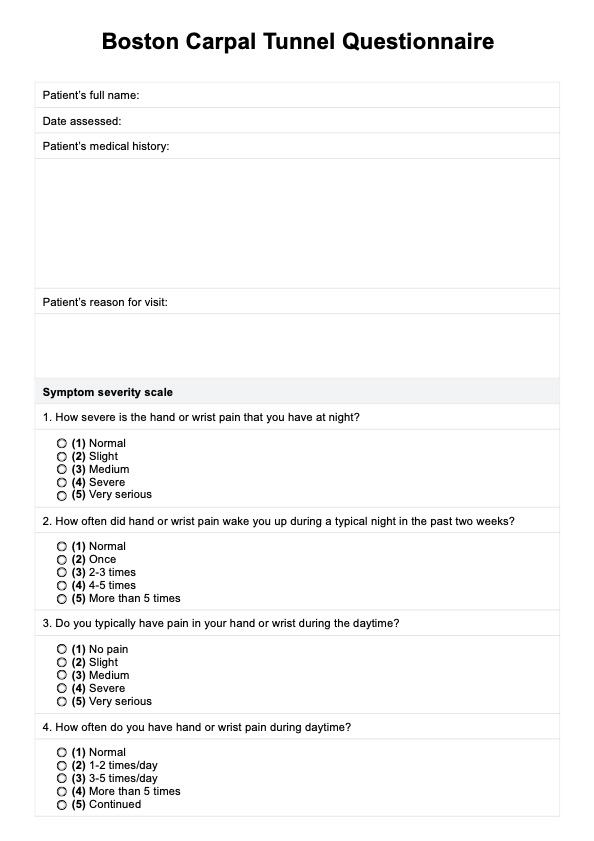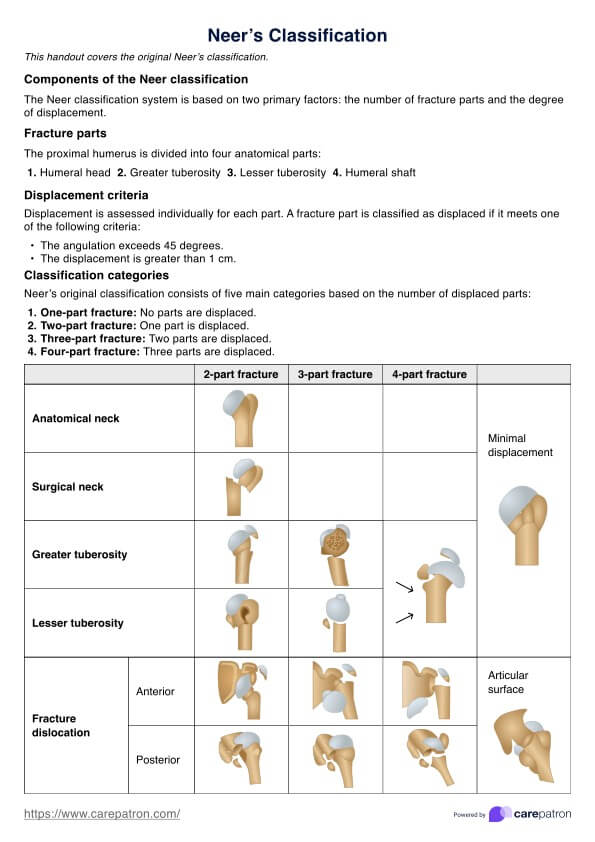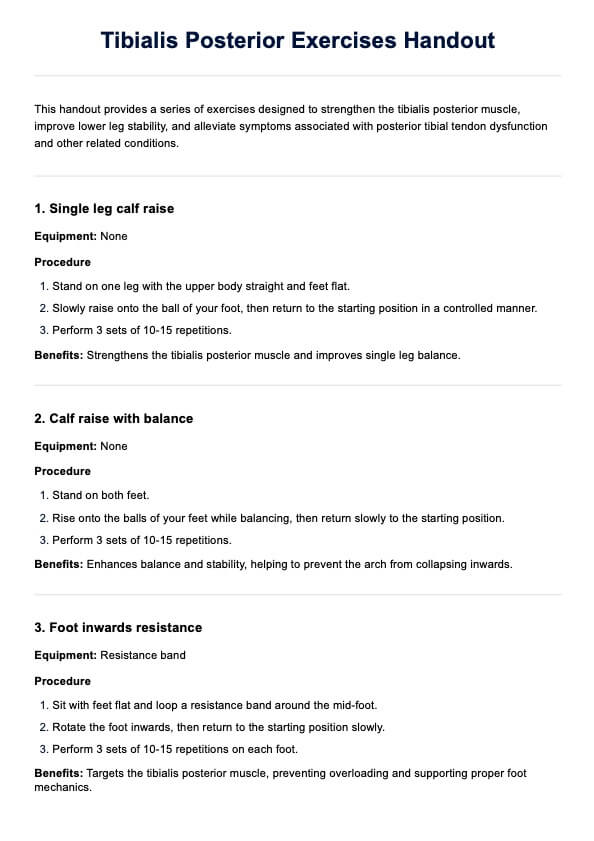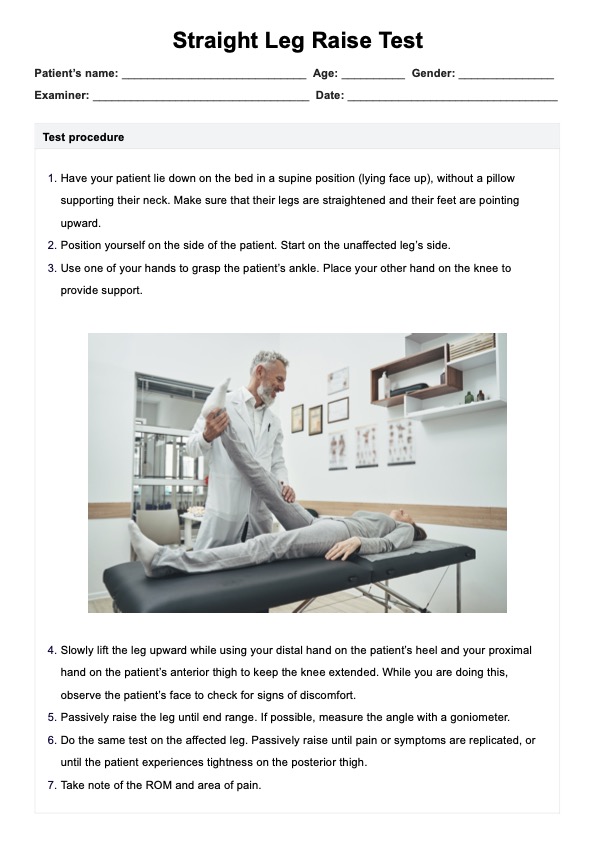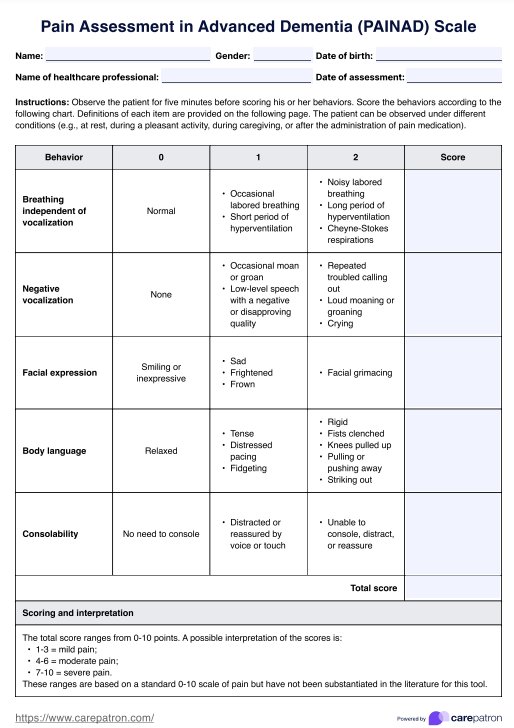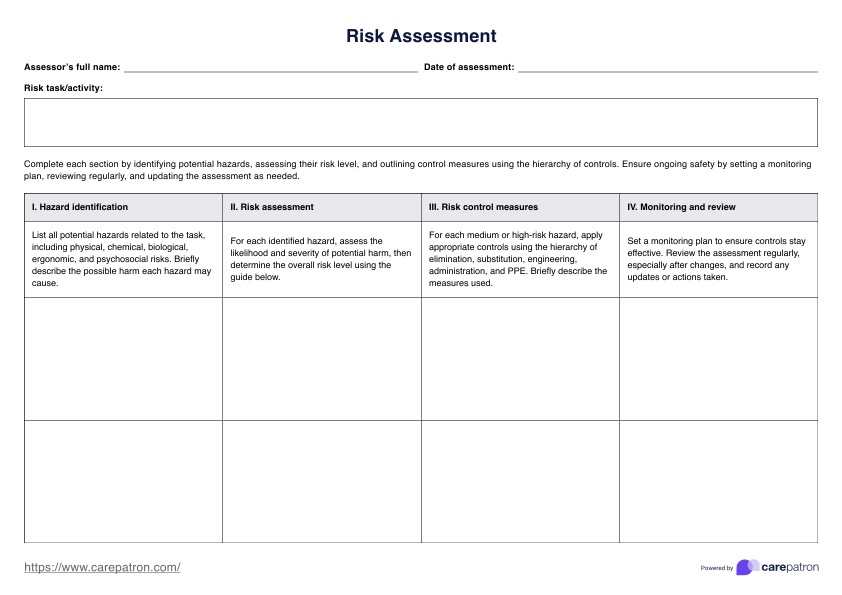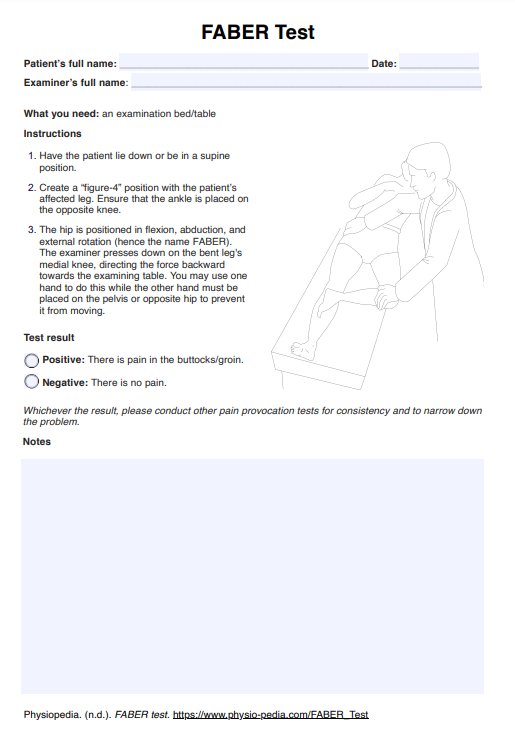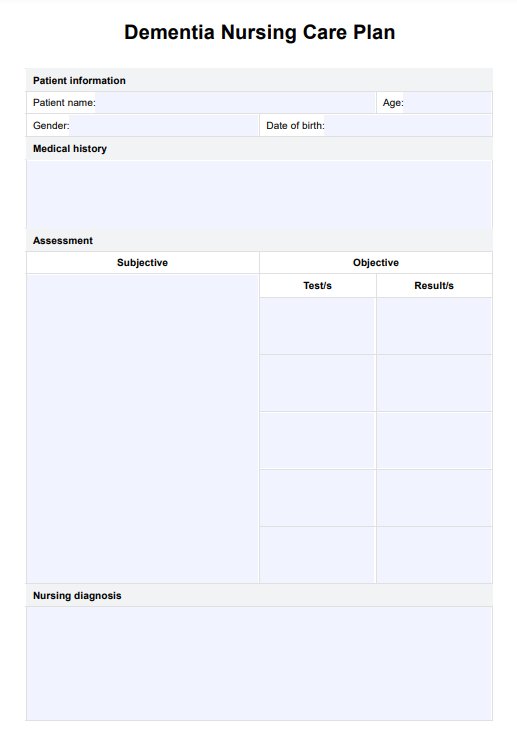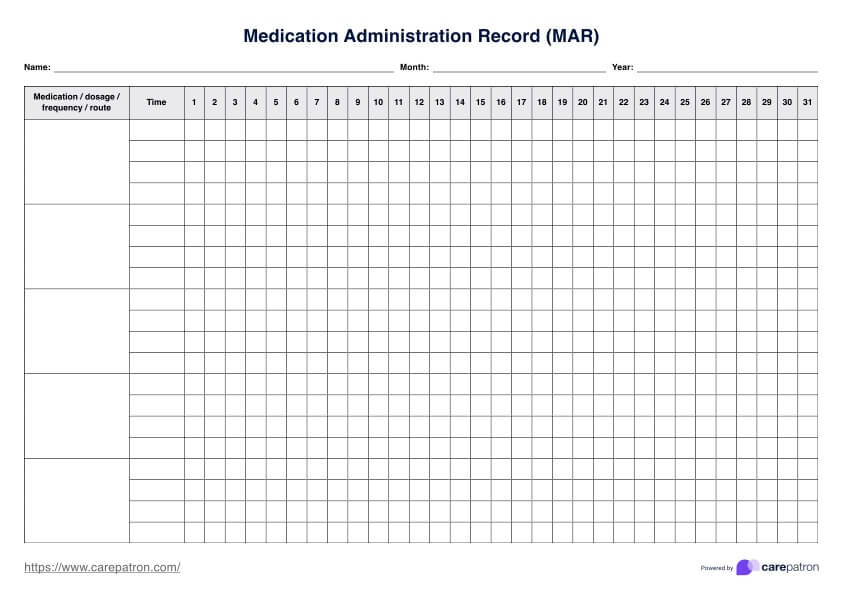Herpes
Easily document and track your patients' HSV test results with our Herpes (HSV) Test form. Simplify reporting and ensure accuracy in care!


What is a Herpes (HSV) Test?
A herpes simplex virus (HSV) Test is an antibody test used to detect the presence of the herpes simplex virus in the body. HSV can cause painful blisters or ulcers, typically around the mouth or genitals, whether it is transmitted through vaginal, anal, or oral sex.
There are two types of HSV: Type 1 (HSV-1) and Type 2 (HSV-2). HSV-1 is commonly responsible for oral herpes, causing cold sores, and can also cause genital herpes. HSV-2 mainly causes genital herpes, which is spread through sexual contact.
Some individuals may experience recurrent outbreaks, where the symptoms, such as blisters or ulcers, reappear. These outbreaks can be painful, and while the virus is treatable with medication, it remains incurable. Early genital herpes tests are important, especially for individuals who might not show symptoms but can still spread the infection.
Herpes Template
Herpes Example
Ways to test for herpes
There are several ways to test for herpes, depending on whether symptoms are present or not. Below are the primary HSV tests used for herpes simplex virus (HSV) detection (American Sexual Health Association, n.d.):
Viral culture
A viral culture involves taking a sample from an active herpes lesion, such as a blister or sore. The sample is then cultured in a laboratory to detect the presence of the herpes simplex virus. This method can identify the specific HSV type (HSV-1 or HSV-2), but it is less sensitive than newer tests, especially if the lesion is small or healing. The viral culture test is most accurate within the first 48 hours of symptoms but may yield a false negative if performed later, particularly during recurrent outbreaks.
Polymerase chain reaction (PCR) test
Polymerase chain reaction (PCR) test is a highly sensitive method used to detect the herpes simplex virus type. It is also called oral herpes testing. This test can identify HSV DNA in a lesion sample, making it faster and more accurate than a viral culture. PCR testing is recommended when symptoms are present and is capable of distinguishing between HSV-1 and HSV-2. PCR tests have less risk of false negatives, making them a preferred option for HSV testing.
Blood test
A herpes blood test is commonly used for HSV testing in individuals who may not have visible symptoms or for those whose symptoms have healed. The test does not detect the virus itself but rather look for HSV antibodies in the blood. Blood tests typically identify Immunoglobin G (IgG) antibodies, which differentiates between HSV-1 and HSV-2 infections. However, it may not show accurate results immediately after exposure, so it is recommended to wait 12-16 weeks after potential exposure before testing for the most reliable results. Blood samples can also be used to detect HSV-1 or HSV-2 antibodies, helping determine if the infection is oral or genital.
How does our Herpes (HSV) Test template work?
The streamlines the testing and documentation process for healthcare professionals by providing a structured and easy-to-use format. Follow these steps to ensure accurate testing, effective communication, and appropriate patient care.
Step 1: Access the herpes test template
You can access the template from this guide. Click "Use template" to open it within the Carepatron platform, where you can customize this tool according to your needs. You can also click "Download" to get a free fillable PDF copy of this form.
Step 2: Use the template during patient testing
During patient testing, use the template to document details such as patient information, test information, test type, etc. The template ensures all critical aspects of herpes testing are covered, enhancing the accuracy and efficiency of the process.
Step 3: Gather test results and document findings
Utilize the designated sections in the template to document findings. This helps identify the herpes simplex virus type and ensures effective communication of diagnostic results for timely patient management.
Step 4: Provide patient education and next steps
With findings recorded, use the template to guide discussions on the diagnosis and next steps. Educate patients on the nature of herpes infections, potential treatments, and preventive measures while addressing their concerns for comprehensive care.
Potential results
A herpes test result can either be positive or negative. A positive result indicates the presence of antibodies or the herpes simplex virus (HSV) in the sample, confirming an HSV infection. This result may differentiate between HSV-1, commonly associated with oral herpes, and HSV-2, linked to genital herpes.
A negative test result suggests no detectable antibodies or active virus, which could mean the person has not been infected or the infection is in its early stages. It’s essential to interpret these results carefully, as timing and test sensitivity may affect accuracy. Health professionals use these results to confirm or rule out sexually transmitted infections, guide treatment, and assess the risk of serious illness.
When would you use this Herpes (HSV) Test template?
The Herpes (HSV) Test is used when diagnosing a suspected herpes infection caused by the herpes virus. It is particularly useful for patients presenting with symptoms such as blisters, sores, or ulcers that could indicate oral herpes or genital herpes.
This template supports healthcare professionals in documenting and organizing critical information during herpes testing. It is also beneficial for asymptomatic patients who may request testing due to potential exposure or concerns about transmission.
By collecting a blood sample or swab, health professionals can perform diagnostic tests to determine the presence and type of the herpes virus. The template ensures accurate test result recording and is an essential tool when healthcare providers recommend herpes testing for managing symptoms, confirming diagnoses, or guiding treatment decisions effectively.
Reference
American Sexual Health Organization. (n.d.). Herpes testing. https://www.ashasexualhealth.org/herpes-testing/
Commonly asked questions
The test for HSV involves diagnostic tests like viral cultures, PCR tests, or blood tests that detect herpes simplex virus (HSV) or antibodies in a sample. These tests help confirm HSV-1 or HSV-2 infections and guide treatment decisions.
Neither HSV-1 nor HSV-2 is inherently worse; both can cause similar symptoms, but HSV-2 more commonly affects the genital area and causes more frequent outbreaks. Severity varies by individual, with symptoms manageable through treatment.
A positive herpes test confirms HSV infection, prompting a healthcare provider to discuss symptom management and prevention strategies. Patients may receive antiviral medication and guidance on reducing transmission risks.


